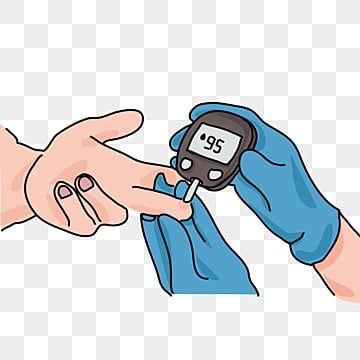Thus, diabetes is chronic disease that is experienced by millions of people all over the world. They can impact virtually all spheres of existence to varying degrees. Although many patients know about the negative impact of diabetes on the heart and kidneys, few are aware of the effects of the condition on hair loss. The present article will describe how diabetes can lead to the development of hair loss, the types of hair loss that people with diabetes may experience, and ways to avoid or minimize this issue.
Understanding Diabetes
Diabetes literally is a condition where one has a high amount of sugar or glucose in the blood for an extended period. There are two main types:There are two main types:
1)Type 1 Diabetes:
This occurs when the blood’s immune system reacts with the cells in the pancreas which produces insulin.
2)Type 2 Diabetes:
This is more prevalent, several of the linguistic characteristics identified in the present research are in line with the ones established by other researchers, for instance, It is a disease of the body that results from inadequate or insufficient production of insulin in the body.
Complications of high blood sugar include the damage to almost all the organs in the body. It affects the blood vessels, and the nerves in the body, heart diseases, kidney diseases, nerve diseases are the result of alcohol. However, does diabetics experience hair loss as well? Let’s find out.
How Diabetes Can Cause Hair Loss
Baldness can be distressing and can reduce an individual’s self esteem]. Other factors that are well understood to cause hair loss include genes, hormonal changes, stress and so on, but new studies prove that diabetes equalizes hair loss. Here’s how:
1. Poor Blood Flow:
Proper blood circulation is a critical component of good health and would be affected due to diabetes especially in the arms and the legs. Hair needs proper supply of blood to get the required nutrients and oxygen to be transported in the hair roots. If this does not occur, hair weakens and falls off from the scalp and other areas found on the body.
2. Hormone Problems:
Diabetes can interfere with hormones, most importantly insulin in the body. Arthur Frank said this. If the body does not use insulin properly (a significant characteristic of Type 2 diabetes), it can increase male hormone levels in both genders. These hormones when produced in large amount leads to hair loss.
3. Immune System Issues:
The first type of diabetes is autoimmune disease, and the immune system affects the body’s parts such as hair follicles. This might lead to a situation where hair begins to fall out and this is referred to as alopecia areata.
4. Stress:
Living with a condition, that is sometimes chronic such as diabetes is very stressful. Tension is among the causes of baldness. Coping with this disease is stressful, and as a result, one can experience more hair loss.
Types of Hair Loss in Diabetes
People with diabetes may experience different kinds of hair loss:People with diabetes may experience different kinds of hair loss:
1. Diffuse Hair Thinning:
This is when hair is nearly unnoticeable all over the head or scalp of the human body, hence needing to be treated. It can therefore be resulted from inadequate blood circulation and nutrient supply.
2. Androgenetic Alopecia:
Allo-pathically known as male or female pattern baldness. This type of hair loss involves hormonal issues and is considered to be worse when there is insulin resistance.
3. Alopecia Areata:
This is an autoimmune disease; hair starts to fall off in patches. It is prevalent in those with at least one other form of auto-immune related illness such as diabetes type 1.
4. Telogen Effluvium:
This is hair shedding that lasts for some time because of factors such as stress or sickness. The stress that results from diabetes management can precipitate this kind of hair loss.
Managing Hair Loss in Diabetes
If you feel diabetes causes hair loss, then it is good to consult with a doctor. Here are some things that might help:Here are some things that might help:
1. Control Blood Sugar:
It is actually very critical to maintain the blood sugar levels in the body. This is true because good control can be of great help to avoid such issues and make hair to be healthy. In recommending steps, consult with your doctor and come up with a healthy diet program, exercising, and taking the right medication.
2. Healthy Diet:
This question had several proposed answers, such as consuming meals with a lot of vitamins and minerals is beneficial for hair condition. Try to capture recommended daily allowances of vitamins such as A, C, D, E, and the B group vitamins and minerals such as zinc and iron. It is recommended to speak with a nutritionist to outline your diet because the food you eat also matters.
3.Medications and Treatments:
It is for this reason that there are drugs that can assist in the treatment of hair loss. Some remedies such as minoxidil can promote hair growth and medicines such as finasteride can regulate hormones elaborately. It is always important that the patient consult their doctor before adopting new therapies.
4.Manage Stress:
It may be said that the absence of stress might be beneficial to general well-being and possibly slow down hair loss. Take measures such as mindfulness, meditation, and speaking a therapist with stress.
5.Gentle Hair Care:
Treat your hair gently. Do not torture your hair with hot treatments, excessive use of a hair dryer, and hairstyles that would pull on your hair.
6.Medical Treatments:
In some cases, therapies such as injecting steroids in cases of hair loss diseases like alopecia areata or Use of LASER in pattern baldness may be advised. Discus with a dermatologist or specialist about these options.
Conclusion
Thus, it could be concluded that diabetes is a potential cause of hair loss. To answer the question as to whether it can is yes it can. Another disease which is dangerous for hair, is diabetes: blood circulation disruptions, hormonal disorders, immunological disturbances, and stress all play a role in hair loss. Thus, one can conclude that the finer hair is associated with poorly controlled diabetes.
Knowing about diabetes’ effects on hair and proper management allow those with diabetes to win a fight against hair issues. If you found a little hair loss and comes to your mind that diabetes can be the issues, you should discuss with your doctor for the proper management.
To sum it all, hair loss can be caused by diabetes, however, these effects can be minimized if sufferers practice good hygienic measures. Always be on the side of prevention when it comes to health and discuss with your health caregiver to get the best solutions to your problem.




